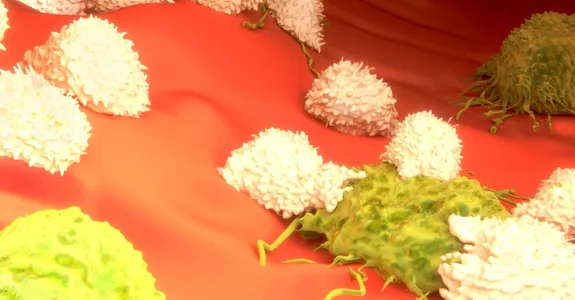
The goal of Dr. Catherine Blish's lab is to develop new methods to prevent and control infectious diseases through better understanding of human immunology. They have several major areas of ongoing investigation.
Understanding the diversity and biology of human natural killer (NK) cells:
The lab's interest in NK cells stems from their ability to directly lyse infected and tumor cells and to mediate antibody-dependent cellular cytotoxicity, acting as a bridge between innate and adaptive immune responses. Their recent study demonstrated that human NK cells are much more diverse than previously appreciated, with both genetic and environmental determinants. The lab is currently examining how this diversity is regulated and its implications for viral immunity in both healthy and diseased states.
Defining the role of NK cells in viral immunity:
Vaccination is one of the most effective methods to prevent morbidity and mortality related to infectious diseases, yet there are many viral infections for which durable, broadly cross-protective vaccines remain desperately needed. Recent data indicating that NK cells may be capable of immunologic memory raises the possibility that we could harness NK cells to fight viruses. Current projects in the laboratory are focused on better understanding how human NK cells recognize and control infection with HIV-1, influenza, West Nile Virus, and Epstein Barr Virus.
Immune signatures of human pregnancy:
Pregnant women are at increased risk of contracting viruses including HIV and influenza, and are more susceptible to severe complications once infected. A major focus of the laboratory is to define the immune mechanisms that contribute to viral susceptibility in pregnant women. These investigations focus broadly on T cell, antibody, and NK cell responses to viruses during pregnancy, and use infection and vaccination as models. In addition, they are also studying the role of immunity in preterm birth.









